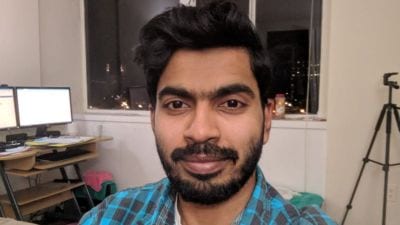📣 For more lifestyle news, click here to join our WhatsApp Channel and also follow us on Instagram
Bill Gates says there is ‘no downside’ to taking multivitamins; experts weigh in
Healthcare providers recommend multivitamins for specific populations, such as pregnant women, or individuals with particular health conditions or dietary restrictions, says Dr Vinayaka G P, consultant, internal medicine, SPARSH Bengaluru
 Bill Gates shares he has multivitamins (Source: Reuters)
Bill Gates shares he has multivitamins (Source: Reuters)Microsoft founder Bill Gates, according to Zerodha founder Nikhil Kamath, is looking “even healthier”. When prodded on what Gates would advise the young ones when it comes to their health, Gates shared in an interview with Kamath on YouTube, “Take multivitamins. There are no downsides. We are seeing if they are anomalies. That’s a good thing.”
Why are multivitamins suggested?
One of the many reasons for taking multivitamins is that people believe their regular food consumption does not provide well-balanced nutrients. “One of the other reasons for people to seek vitamin supplements is because the elderly often face nutritional deficiencies and so their consulting physicians recommend taking multivitamins,” said Dr Vinayaka G P, consultant, internal medicine, SPARSH Bengaluru.
Healthcare providers recommend multivitamins for specific populations, such as pregnant women, or individuals with particular health conditions or dietary restrictions, mentioned Dr Vinayaka.
Dr Vinayaka also cited a 2022 survey for India which said that 48 per cent of the respondents aged between 35 and 44 took dietary supplements due to increased health awareness, drive to stay fit, dietary habits, and constant lifestyle changes.
Are multivitamins good for you as you age?
Dr Vinayaka said that there is no predominant research about the benefits of taking multivitamins, especially around strengthening the immune system and boosting energy levels. “Since there is no considerable harm seen due to its consumption people aren’t often refrained from self-prescribing multivitamins,” said Dr Vinayaka.
If the diet lacks essential vitamins and minerals, a multivitamin can help fill those gaps and support overall health and its ease of use, as taking a daily multivitamin can be easier than ensuring you get all the necessary nutrients through diet alone, described Dr Brunda, M S, consultant, internal medicine, Aster CMI Hospital, Bangalore.
But, overdoing any action leads to a downside and this applies to consuming multivitamins also. “The idea of multivitamins having no downside is not true,” contended Dr Jinendra Jain, consultant physician, Wockhardt Hospital, Mira Road.
 Do you have multivitamins? (Source: Pexels)
Do you have multivitamins? (Source: Pexels)
Dr Vinayaka cautioned against the following:
Toxicity: Vitamins A, D, E, and K are fat-soluble and can accumulate in the body, potentially leading to toxicity.
Overload: Some multivitamins contain high levels of minerals like iron or zinc, which can be harmful in excessive amounts. For instance, too much iron can cause gastrointestinal issues and even organ damage.
Interference: Some vitamins and minerals, for example, vitamin K can interfere with blood thinners like warfarin, reducing their effectiveness.
Imbalance: Taking multivitamins can sometimes lead to imbalances and this can disrupt the body’s natural nutrient balance and metabolism.
To avoid these problems, it would be best to first consult your physician, focus on a natural and balanced diet, and personalise your supplements based on your body’s needs, Dr Vinayaka said.
Multivitamins can help, but they cannot replace a balanced and healthy diet, urged Dr Jain. “Eating a balanced diet with a variety of healthy foods is essential to meet the nutritional requirements of your body,” said Dr Jain.
Agreed Dr Brunda and shared that taking a multivitamin on top of a healthy diet might lead to exceeding recommended daily intake levels. “One needs to understand, they cannot replace a holistic healthy diet inclusive of whole grains, protein, fruits and vegetables,” said Dr Brunda.
📣 For more lifestyle news, click here to join our WhatsApp Channel and also follow us on Instagram
Photos





- 01
- 02
- 03
- 04
- 05






















